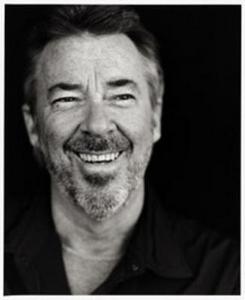The Dallas Morning News - Boz Scaggs Interview
Can You Dig It[By: Thor Christensen; Pop Music Critic. October 19, 2001]Boz Scaggs experiments with hip-hop but builds new album on foundation of blues and jazzBut none of that would erase most people's perception of him: "Boz Scaggs, 1970s Disco Dude." "I was left with a certain image from a certain time," says the Plano-raised singer who's best-known for such dance-floor grooves as "Lido Shuffle" and "Lowdown" (both from his 1976 album Silk Degrees). "I'd made five or six albums before that, and as many since then, but people still think, 'That's who he is.'" Not that he's complaining, exactly. Silk Degrees sold more than 5 million copies, giving him the luxury of making music only when he feels inspired to. But the disco image left over from Silk Degrees has turned into a millstone for Mr. Scaggs - an artist who has always explored a vast range of blues, soul, and funk-based styles. For Dig (his first studio CD in four years), he even experimented with hip-hop on "Get on the Natch." "To my ear, there's some brilliant stuff musically going on in hip-hop," he says. "I can't comment on the quality of the lyric writing, but some of the sounds and landscapes that are being created are insanely beautiful. I just borrowed a piece of it." The CD also boasts a recurring jazz vibe, thanks to a Dallas native, trumpeter Roy Hargrove. Mr. Scaggs heard his playing on D'Angelo's Voodoo and thought his approach might jibe with Dig. "We were looking for a style of horn ensemble playing that came out in Blue Note Records in the early '50s, and Roy came in and proceeded to blow our minds," the 57-year-old singer says. Other tracks on the CD revolve around Mr. Scaggs' trademark bluesy electric guitar solos. He chalks up his love of the blues - and R&B in general - to the music he heard growing up in the Dallas area in the '50s. "It was a particularly fertile place to grow up. I grew up in Plano, which was a small town at the time, but on the radio, you could hear music styles from everywhere," he says. "'Cat's Caravan' on WRR was like a musicologist's dream every night - from Lightnin' Slim and T-Bone Walker to Howlin' Wolf and Son House. And Dallas was a great crossroads at the time for bands. I got to see Bo Diddley as a kid, and seeing Ray Charles at the State Fair Auditorium [now Fair Park Music Hall] changed my life." Mr. Scaggs cut his teeth in rock and soul with the Marksmen - a band of aspiring musicians from St. Mark's prep school featuring another future star, Steve Miller. The two regrouped in the early '60s in Madison, Wis., (where both were going to college) and again in 1967 in San Francisco, where the brand-new Steve Miller Band was rising fast in the Summer of Love. But after recording two albums with Mr. Miller, Mr. Scaggs suddenly quit to resume the solo career he'd begun with his 1965 LP, Boz. Thirty-four years later, he says he's sure he made the right decision in splitting with Mr. Miller. "It wouldn't have lasted, because we were clearly two individuals with too many of our own ideas," he says. "I just remember Steve and I agreeing that if there was any friendship to be maintained that we'd better shake hands and get on our ways, individually." Mr. Scaggs scored a string of minor solo hits in the early '70s before he hit the big leagues with Silk Degrees. "When disco emerged, we were right there," he says. "It just caught white radio at the right time." He rode the charts again at the dawn of the '80s with hits such as "Look What You've Done to Me" (from Urban Cowboy), but gradually, he burned out on performing. Instead of going through the motions, he simply quit the music biz and spent most of the '80s traveling. "I didn't miss it at all when I stopped. ... There wasn't any music in my head," he says. "But after some time, the melodies started coming back to me, and I started listening more and playing more, and when it came back, it was with the same joy with which I discovered music in the first place." Dig marks his third studio CD in the last seven years - a rate he's planning to increase. Although he's in the middle of a concert tour, he's already plotting his next CD. "By stepping away from music, I was sort of re-indoctrinated and given a rebirth to what I truly love about music," he says. "I'm eager to get back into the studio. ... I can see doing this on a more full-time basis than I've ever done."
|
|||||||


